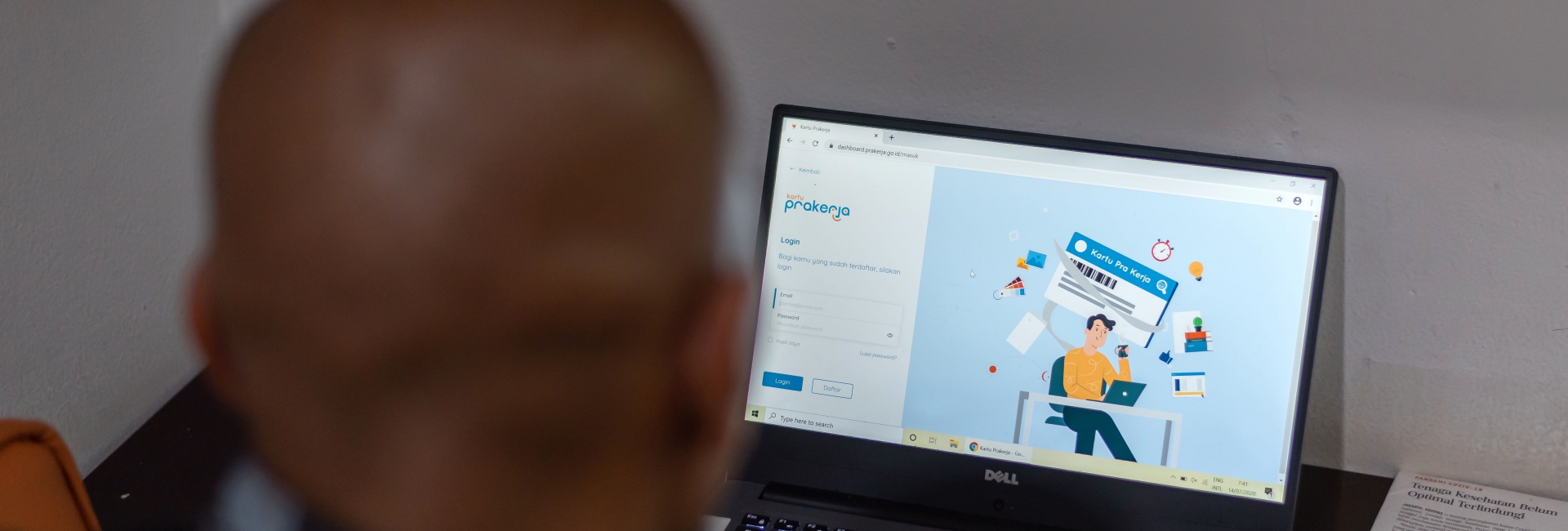SMERU’s responses to the implementation of Pre-employment Card program (Perppu No. 1/2020): The program should be directed at strengthening the efforts to mitigate the impacts of the COVID-19 pandemic, such as training programs for health workers, volunteers, and micro- and small-scale enterprises (MSEs).
The Pre-employment Card program, which will allocate Rp20 trillion for informal workers and MSEs affected by the COVID-19 pandemic, is deemed unable to truly target the priorities that are urgently needed. During the pandemic, Indonesia needs to improve the capacity of its healthcare services and workers, mobilize volunteers, and train MSEs to produce healthcare equipment which is sorely needed at the moment.
Therefore, SMERU has formulated three policy recommendations with regard to the implementation of Pre-employment Card program adjusted to current priorities:
- Replace the initial targets of the training program (job seekers and workers in certain conditions) with healthcare workers, both at the first level healthcare facilities (FKTP) and at advanced referral healthcare facilities (FKRTL), health volunteers, and MSEs.
Healthcare workers, notably at the healthcare facilities in the regions, and healthcare volunteers are to receive training on the correct procedures to handle COVID-19 suspect patients and confirmed patients. The protocol includes promotional, preventive, curative and rehabilitative measures. Especially for healthcare volunteers, the portion of the training focuses on the promotional and preventive measures related to COVID-19. These measures can be in the form of facilitation in the community level.
- Change the training materials to special training materials on health and skills to produce healthcare equipment.
The training related to the preventive and promotional measures includes guidelines on hand washing and physical distancing. As the next step, the volunteers can take part in the advanced training to help healthcare workers perform COVID-19 rapid tests. Training for MSEs focuses on the production of healthcare equipment, such as face masks, personal protective equipment (PPE), and hand sanitizers, which meet the medical quality standard. The target groups from MSEs do not need to come from those who are already engaged in the production of healthcare equipment.
- To optimize the utilization of the training budget, reduce the monthly incentives for the participants and increase the number of training participants.
To close, in providing training for healthcare workers and volunteers, the government can, at the same time, invest in human resources in the healthcare sector. This investment is not only needed during the pandemic, but also to anticipate similar needs in the future. Moreover, the training for MSEs to produce healthcare equipment is important as the country is in dire need of PPE. MSEs also need to change their business product in order to avoid going under.
To close, in providing training for healthcare workers and volunteers, the government can, at the same time, invest in human resources in the healthcare sector. This investment is not only needed during the pandemic, but also to anticipate similar needs in the future. Moreover, the training for MSEs to produce healthcare equipment is important as the country is in dire need of PPE. MSEs also need to change their business product in order to avoid going under.




